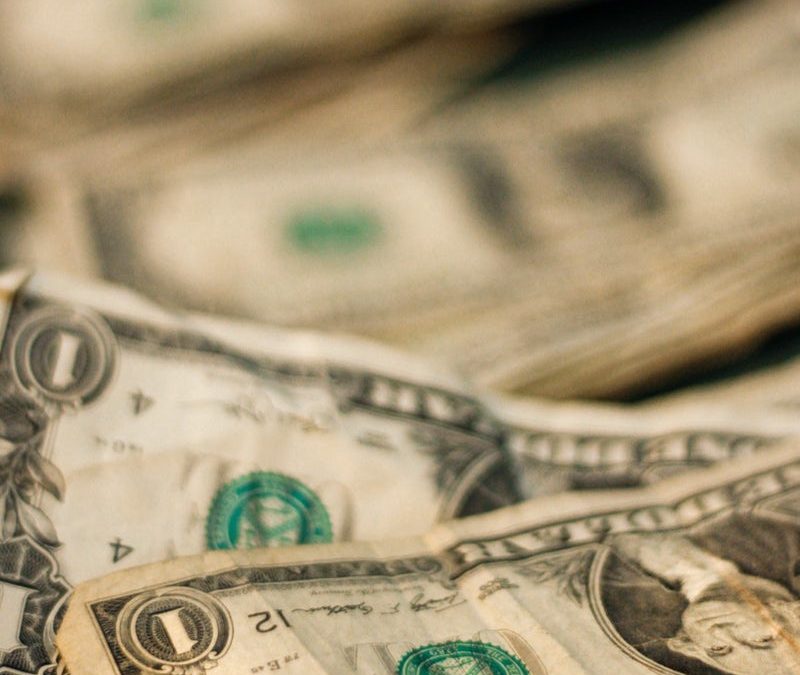My good Mennonite father was anti-materialist and anti-consumerist to an extreme. He firmly believed that God only asked for him to be obedient and humble in doing His will. He would take care of the rest. And he and my mother lived their lives accordingly.
“We don’t need curtains. Just hang sheets up over the windows,” Dad said to my mother when she suggested that the Sears catalogue had some curtains for sale at a deeply discounted price.
They bought their clothes at a used-clothing store called Etcetera, where the proceeds went toward Mennonite missionary work around the world. They consumed food from the expired-items carts in grocery stores, believing that not doing so was a sinful waste.
My father was obsessed with being frugal. “Daot’s nich tum dien Buck offtscheile — that’s not for cooling off your tummy,” he’d often say to in our native Low-German if we held the fridge door open too long when we were kids.
This in stark contrast to most of the world, which has a love affair with acquiring material things, with shopping, with conspicuous consumerism, with self-indulgence. And it’s not just Americans anymore. It seems to be a global obsession.
Mine too, I’m afraid.
I‘ve acquired a lot of stuff. My husband and I own two homes. OK, they’re townhouses, both of them, but still. We love good food and spend crazy amounts of money on travel. Spending money does contribute by keeping people employed, right?
There’s an old Proverb that says, “Money is a good servant, but a horrible master.”
But here’s the sticky question I want to pursue in the next few blog posts:
What does it really mean for money and the stuff money buys to become my “master?”
Do money and stuff become my “master” when I’m obsessed about not spending as much as they do when I’m obsessed about spending?


It could be that money is just pieces of paper or plastic we can trade with others for things they have. Somehow this very simple idea of of stuff that helps us facilitate commerce has certainly taken on a lot of extra meaning and so much righteous certainty. May we each find our own way of being at peace with it.
Lovely piece of wisdom!
This will be a controversial comment, but as a person of significant wealth, I believe that I can never answer this question without the perspective of those on the other side of privilege, those who are the most poor and dispossessed in the world. How would they answer? (This applies to any endeavor to gain clarity on issues of disparity. It is always seen most clearly from the underside. ie: the impact of slavery is understood best by the slaves, not the masters. Or the impact of patriarchy by women. Etc.)
Thanks, Mary Lou! I’m not seeing anything controversial about your comment. I believe both the wealthy and the poor have some important things to say about the role of money in their lives. The narratives will differ significantly, and both will enrich our lives if we allow ourselves to think about them, and if we are open to others’ experiences and thoughts about them.
Mary Lou, I just reread your comment and my response. To be sure, gaining clarity on the issue of disparity is most likely if viewed from the underside. The question I was asking was not about disparity, but about when it is that money becomes our “master.”
I try to follow the saying, “Live simply, so that others might simply live.”. Or, to be satisfied having enough, not more than I need. It seems in today’s consumeristic world, it would take more than one earth to provide our standard of living to everyone in the world.
Thank you, Jamie. It’s quite humbling to ask the question “Am I satisfied with not having more than I need?” Many of us need so much less than we have!
Money becomes our master when we love it more than we love God, just as any person, place, thing, or idea can become an idol in our life. Listening to God, even in the seemingly insignificant moments is so important. This may seem unrelated, but please bear with me. My husband and I had agreed (this was many years ago) to stop delivery of all magazines as a cost-saving measure. So, when I got to the grocery check-out and felt a very strong sense that I should buy a particular magazine off of a display, I resisted. I even felt that perhaps I was being tempted. Then, I felt an even stronger sense to buy. At the last possible moment I threw the magazine on the belt. Upon arriving home, I quickly searched through the magazine looking for any sign of why I had been so strongly drawn to buy it. In the middle was an article for a brand new baseball league for children with special needs. My daughter, who has special needs, had been asking longingly if she could play ball on a team like her brother. This was a nationally-circulated magazine, but the new league was not too far from our hometown! I called to sign her up, though it was past the deadline, and they agreed to let her play! I could have been so legalistic that I ignored God’s leading and, thereby missed a blessing for my daughter (and, really, for our whole family) that I believe it was God’s good pleasure to provide for us!
What a lovely and inspirational post. Thank you, Glenda, for sharing it!